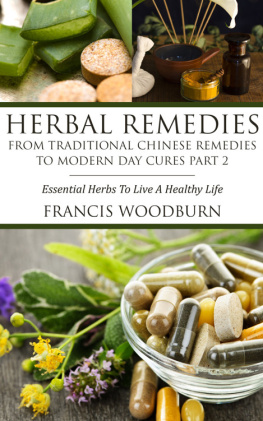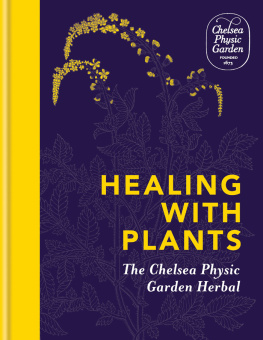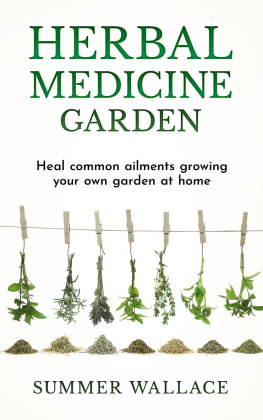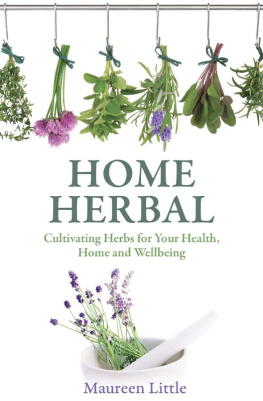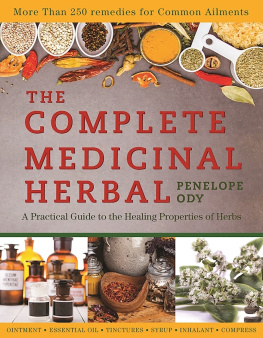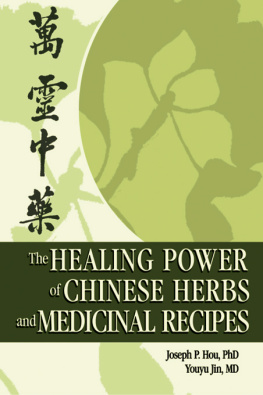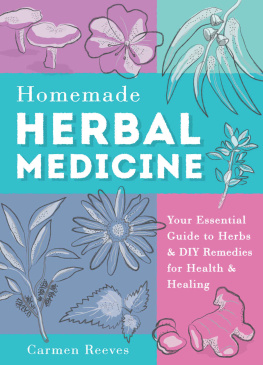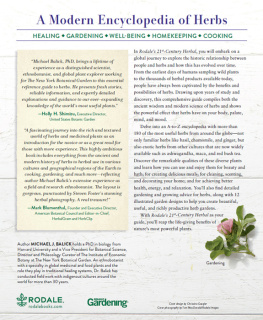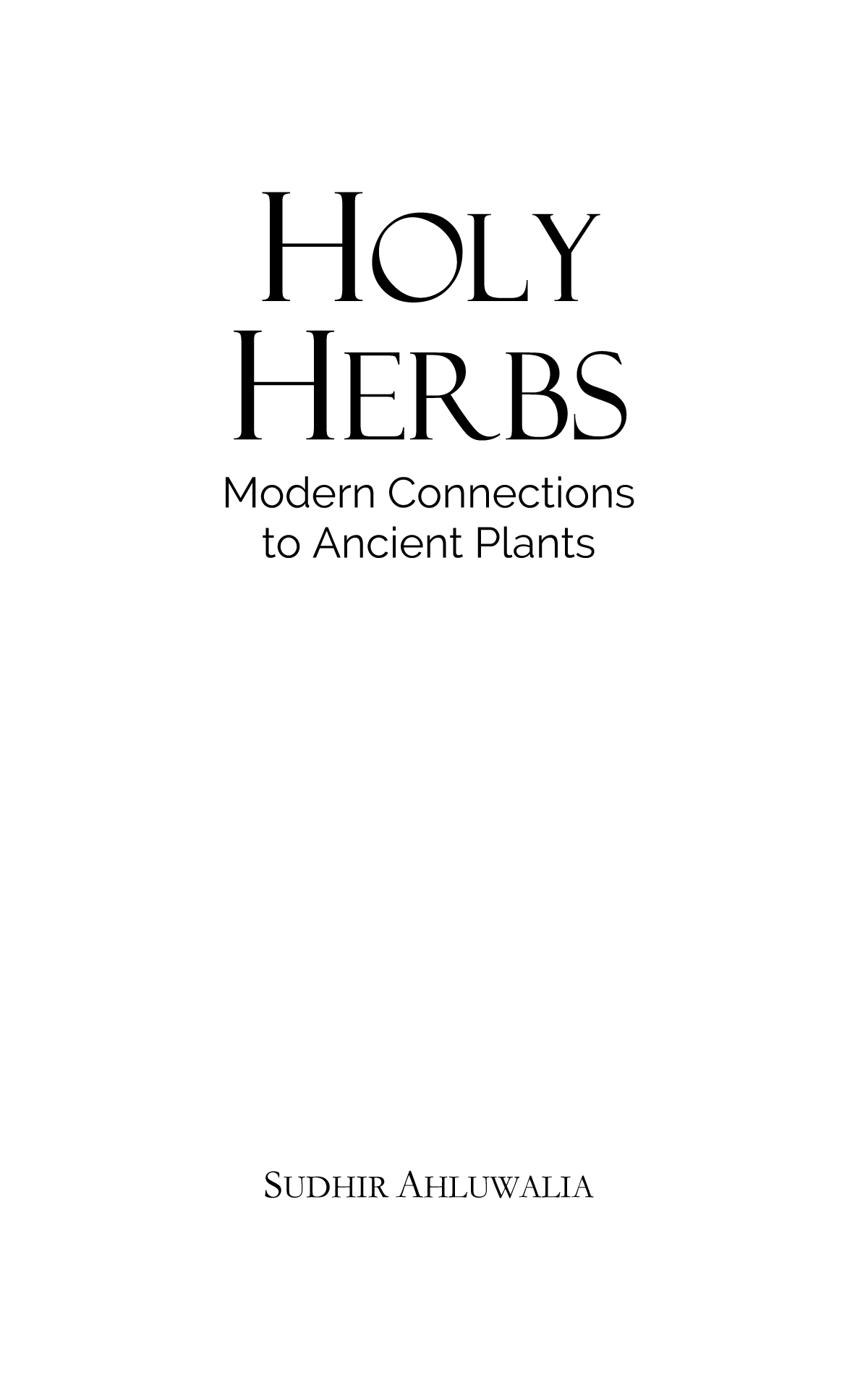First published in 2017 by FINGERPRINT LIFE
An imprint of Prakash Books India Pvt. Ltd
113/A, Darya Ganj, New Delhi- 110002
Tel: (011) 23247062 -65, Fax: (011) 23246975
Email: info@prakashbooks.com/sales@prakashbooks.com
Copyright Text: Sudhir Ahluwalia
All rights reserved. No part of this publication may be produced, stored in a retrieval system or transmitted in any form or by any means, electronic, mechanical, photocopying, recording or otherwise (except for mentions in reviews or edited excerpts in the media) without the written permission of the publisher.
Reviews for
HOLY HERBS
A brilliant account of origin and identification of plants as mentioned in religious texts... A very nice piece of work.
B. K. Singh, Former Principal Chief Conservator of Forests (Head of Forest Force), Karnataka
A unique presentation of history of medicinal herbs, their modern uses, as well as scientific evidence supporting their medical applications. An interesting book with a very special flavour.
Dr. Atanas Atanasov, Head of Microbiology Institute of Genetics and Animal Breeding of the Polish Academy of Sciences
Holy herbs describes a number of well-known herbs which have been used since the 3rd millennium bc and are in use even today... A very stimulating and informative read.
D. K. Ved, School of Conservation of Natural Resources, TransDisciplinary University
Role of plants in treating diseases like cancer to malaria is well known. Most of us know that Taxol which inhibits cell division is a plant extract in cancer treatment. Quinine sulfate (Qualaquin) in treatment of malaria is another example of Herbs and plants usage in medicine. However, understanding close linkage of culture, religion, trade with healing practices of modern day and the past is quite interesting and is a good read. Dr Ahluwalia's contribution towards this is praiseworthy.
Ashok Pai, CEO Waqf Board, Government of India
I ordered this book with a lot of curiosity to know about the usage of many of the well known and popular herbs across different countries and regions since the ancient times. I must admit that I have not been disappointed. The book is full of interesting facts about a wide range of herbs which have continued to be in use for culinary, aromatic and healthcare purposes over more than 2000 years of history. Specific quotes from Biblical texts, about their usage, provides a unique historical perspective to the whole subject.
Dr. Madhu
The book covered a lot of great material and really fascinating research on the origin and identification of herbs from biblical times to their modern use today. Many books about herbs list various uses with no scientific explanation but I venture to say that never before have the various aspects been explored in this depth and specificity. Very well written and indeed, a great read. Highly recommended...
Amazon Customer
A great Insightful, gripping read till the end. As a chef, now i look at my herbs, and spices in a completely new light. Enchanting.
Gaurvi
Interesting, informative, well researched, highly recommended and language is very simple.
Amazon Customer
Sudhir Ahluwalia has done a commendable job in Holy Herbs, a compendium of culinary and medicinal herbs used, traded and fought over right from the beginning of recorded History (maybe even earlier) to the present day. The presentation is user friendly and the details most lucidly brought out. It is only natural that for these herbs, shrubs and trees to become holy or sacred, their mention in religious texts is a sine qua non; a sort of divine certification the writer has drawn upon and quite thoroughly highlighted. However, holy herbs like many other things holy, are getting scarce; like Adam and Eve they are being banished from our planetary Garden of Eden. This aspect, though mentioned in the passing, needed perhaps a separate chapter. For students, homemakers, grandmas and herbal healers, a useful, handy reference to have around the house.
Vinay Tandon
DEDICATION
This is for Vibha, my wife,
without whose support this
would not have been possible .
Disclaimer
The purpose of this book is to provide information. None of the information provided in this book is intended as medical advice. Always seek advice from medical professionals before starting any treatment.
INTRODUCTION
Today, there is an increasing trend towards organic and green living worldwide. Herbal products, derived from plants and trees are extensively found in foods, nutritional supplements, cosmetics, traditional medicines, and folk remedies.
The global herbal product industry, as per Eurostat figures, reached nearly $200 billion in sales in 2005. According to Kennedy (2005), approximately 38.2 million adults aged 4564 in the United States used herbs and supplements in 2002. The rates were higher for women than for men (21.0 percent vs. 16.7 percent, respectively).
The Chicago-based research firm, Mintel, estimated that U.S. retail sales of homeopathic and herbal remedies reached $6.4 billion in 2012, up by almost 3 percent from 2011, and has grown 16 percent over the past five years. Mintel forecasted an increase in sales, to $7.5 billion by 2017.
Many products that are popular today have a long history. Ancient texts mention the use of herbs, plants, and trees in food, cosmetics, religious rituals, and medicine. This book investigates the scientific evidence that supports or refutes traditional uses of herbal products, particularly those described in the Old and New Testaments, the Talmud , the Quran , and the Hadiths , which continue to influence billions of people.
By investigating these texts from a historical and scientific viewpoint, I have sought to draw connections between the past and present, as well as between the various cultures and geographies discussed herein.
The Bible, for example, is one of the greatest sources of ancient human history. It describes views, thoughts, practices, and value systems of Jews and Christians from the ancient empires of Babylon, Mesopotamia, Egypt, Persia, Macedonia, Greece, and Rome.
In particular, this book strives to answer the following questions:
- What is the origin and correct identification of plants mentioned in important religious texts, such as the Bible , and secular literature?
- What was the value of these herbs in Biblical times?
- How was trade in herbs conducted over the millennia, and to what extent does this trade survive?
- What archaeological evidence supports the use of herbal products?
- What, if any, current research supports the use of herbal products?


